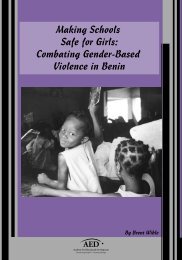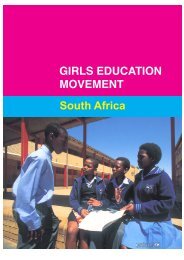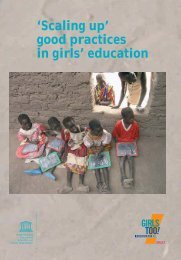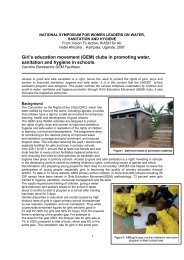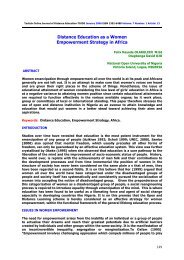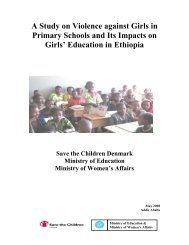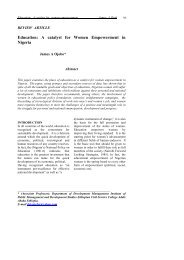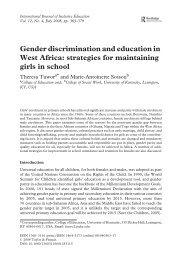Promoting basic education for women and girls ... - library.unesco-ii...
Promoting basic education for women and girls ... - library.unesco-ii...
Promoting basic education for women and girls ... - library.unesco-ii...
You also want an ePaper? Increase the reach of your titles
YUMPU automatically turns print PDFs into web optimized ePapers that Google loves.
After gaining independence from Portugal in<br />
Mozambique waged a bitter civil war that laste<br />
teen years. The country has been engaged, however, in a<br />
steady process of consolidation of democracy <strong>and</strong> socio-<br />
reconstruction since the signing of a peace<br />
accord, <strong>and</strong> the holding of the first multi-party elections<br />
in 1992.<br />
aeconomic An essential part of the reconstruction process is a<br />
national <strong>education</strong> policy (Política Nacional de Educaçã<br />
o),<br />
published in 1995, which identified <strong>basic</strong> <strong>education</strong> <strong>and</strong><br />
adult literacy as the ‘topmost priority of the government’.<br />
The policy has since given birth to an Education Sector<br />
Strategic Plan 1999–2003, the first priority of which is<br />
‘increased access to <strong>education</strong>al opportunities, at all lev-<br />
els of the <strong>education</strong> system’.<br />
Mozambique<br />
M37M<br />
Mozambique:<br />
u<br />
Inclusion<br />
<strong>and</strong> participation<br />
The context<br />
m<br />
fter gaining independence from Portugal in 1975,<br />
Mozambique waged a bitter civil war that lasted six-



